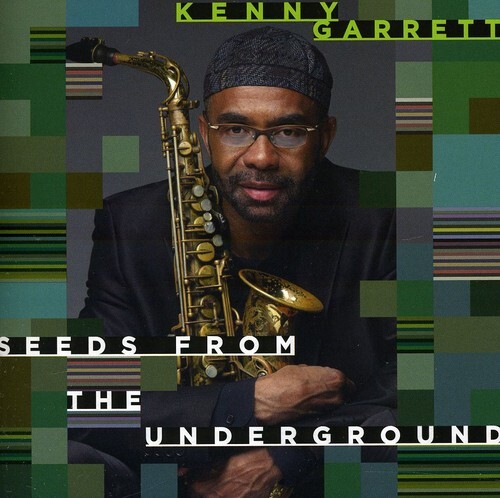

I was in Miles' band for about five years. Garrett is best known in many circles for the five years he spent playing with Miles Davis during Davis's electric period, and has stated that he has become accustomed to this association: Garrett's music sometimes exhibits Asian influences, an aspect which is especially prevalent in his 2006 Grammy-nominated recording, Beyond the Wall. During his career, Garrett has performed and recorded with many jazz greats such as Miles Davis, Art Blakey, Joe Henderson, Brad Mehldau, Freddie Hubbard, Woody Shaw, McCoy Tyner, Pharoah Sanders, Brian Blade, Marcus Miller, Chick Corea, John McLaughlin, Herbie Hancock, Bobby Hutcherson, Ron Carter, Elvin Jones, and Mulgrew Miller. are Pursuance: The Music of John Coltrane, recorded in 1996, and Songbook, his first album made up entirely of his own compositions, recorded in 1997 and nominated for a Grammy Award.


Records label, and beginning with Black Hope, in 1992, he has continued to record with them. Since 1990 the majority of Garrett albums are co-produced by pianist/composer Donald Brown. He then recorded two albums with Atlantic Records: Prisoner of Love and African Exchange Student. In 1984, he recorded his first album as a bandleader, Introducing Kenny Garrett, on the CrissCross label.

A few years later he performed in the Mel Lewis Orchestra, playing the music of Thad Jones, and also the Dannie Richmond Quartet, focusing on Charles Mingus's music. Garrett's own career as a saxophonist took off when he joined the Duke Ellington Orchestra in 1978, then led by Duke's son, Mercer Ellington. His father was a carpenter who played tenor saxophone as a hobby. Kenny Garrett was born in Detroit, Michigan, on Octohe is a 1978 graduate of Mackenzie High School. Since then, he has pursued a solo career. Garrett’s core band comprises pianist Vernell Brown, bassist Corcoran Holt and drummer McClenty Hunter, but here they are spelled by the likes of pianist Benito Gonzalez and drummer Marcus Baylor, and augmented where needed by trumpeter Ravi Best and percussionist Rudy Bird, and the resultant album, which promiscuously mixes latin rhythms with whip-smart post-bop, is a typical Garrett production: irresistibly peppy and exuberant, yet graceful, even elegant in its assured adherence to the core jazz values of swing and improvisatory imagination.Īs Cook comments, Garrett ‘has gradually worked away from existential solos and towards a more songful, even carefree manner’ (which may explain the inclusion of the slightly saccharine Bacharach tune ‘I Say a Little Prayer’ in the otherwise mostly hard-driving set), and Pushing the World Away is consequently immediately accessible, breezily persuasive but intense, and a worthy successor to its double Grammy-nominated predecessor.Kenny Garrett (born October 9, 1960) is a Grammy Award-winning American post-bop jazz saxophonist and flautist who gained recognition in his youth as a member of the Duke Ellington Orchestra and of Miles Davis's band. Garrett is also keen to point listeners towards the music of his own formative influences (as he did so successfully on recent releases such as Songbook and Seeds from the Underground), and here he nods towards Chick Corea ( ‘Hey, Chick’, which ‘captures that Spain, Eastern Spanish, Moroccan vibe’ according to Garrett), Chucho Valdés (the infectiously percussive ‘Chucho’s Mamba’) and Sonny Rollins ( ‘J’ouvert’, described as ‘my “St Thomas”’ by Garrett). The late Richard Cook (in his indispensable Jazz Encyclopedia, Penguin, 2005) discerns ‘a good flavour of Junior Walker-style blues licks’ in the saxophone style of US master Kenny Garrett(attributing it to his Detroit roots), but also notes that Garrett’s playing ‘can otherwise be as loquacious and many-noted in its delivery as that of any other post-bop saxophonist’, concluding that he is ‘a communicative player who likes listeners to be excited and persuaded by his music’.


 0 kommentar(er)
0 kommentar(er)
